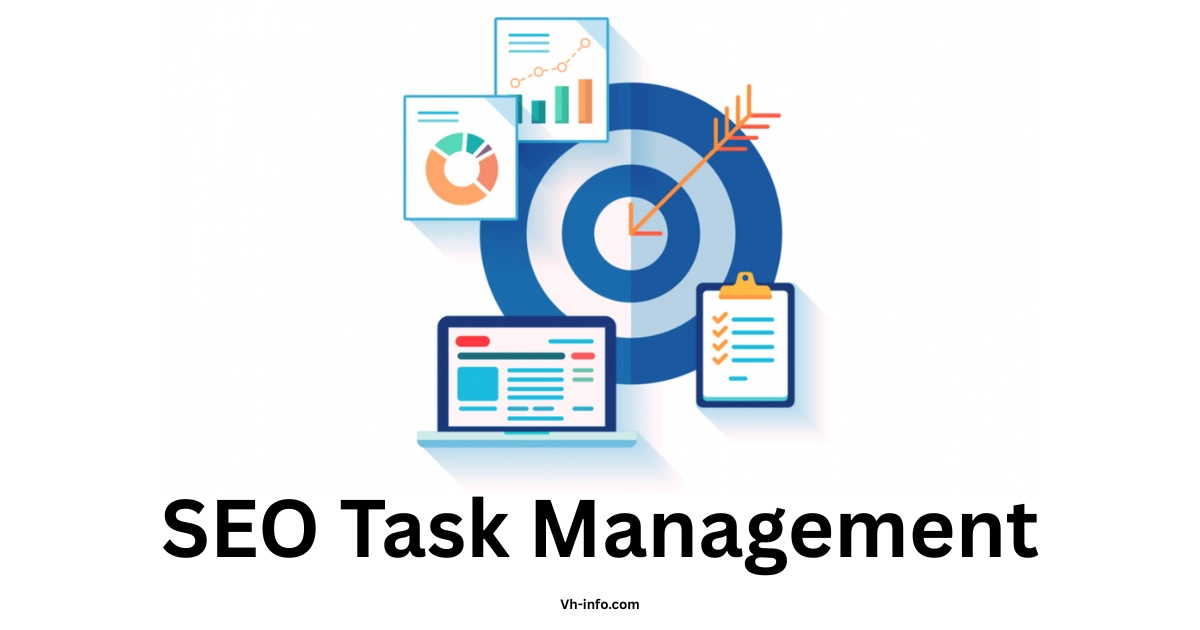Your website’s ranking position in Google search results plays an important role in determining its success.
For SaaS businesses, appearing on the first page of Google can significantly boost organic traffic, attract leads, and drive conversions. Studies show that the top three search engine results receive around 75% of all clicks, while websites beyond the first page struggle to gain visibility.
Knowing your website’s Google rank and tracking its performance regularly is essential for improving your online presence and staying competitive.
In this guide, we’ll explore simple ways to check your website ranking, tools like Google Search Console and SEO ranking checkers, and actionable insights to enhance your site’s visibility for relevant keywords.
Whether you’re targeting specific keywords or analyzing search engine rankings, understanding your current position is the first step toward effective SEO efforts.
Where Does My Website Rank On Google?
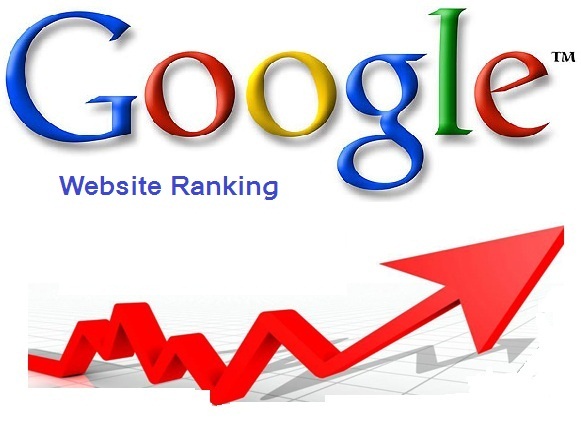
Google ranking refers to the specific position your website occupies in Google search results for particular keywords.
For example, if someone searches for “SaaS link building services” and your website appears as the third result, your ranking position for that specific keyword is 3.
The Google search engine uses complex algorithms considering over 200 factors to determine search engine rankings. These include your website’s relevance to the search query, content quality, backlink profile, user experience metrics, and many more technical elements.
Finding your exact website rank isn’t as straightforward as it might seem.
Rankings fluctuate based on:
- User location
- Search history
- Device type (mobile vs. desktop)
- Personalization factors
- Algorithm updates
This variability means that different users might see your website in different positions for the same search query. Additionally, your ranking position can change daily as Google continuously updates its index and algorithm.
Why Is Knowing Your Website Ranking Important?

Monitoring your website ranking on Google provides valuable insights into your online presence and SEO efforts.
Here’s why tracking your Google rank matters:
- Measures SEO Effectiveness: Your ranking position directly reflects the success of your SEO work. Improvements in rankings indicate that your optimization strategies are working, while drops may signal issues that need addressing.
- Drives Traffic and Conversions: Higher rankings correlate strongly with increased organic traffic. The top search results attract significantly more clicks than lower positions. For SaaS companies, this translates to more demo requests, free trial sign-ups, and ultimately, paying customers.
- Provides Competitive Intelligence: Tracking rankings helps you understand how you stack up against competitors. By monitoring position changes for key terms in your industry, you can identify competitors’ strategies and adapt accordingly.
- Guides Content Strategy: Rank tracking reveals which content performs well and which underperforms. This information helps you refine your content approach and focus on topics that drive the best results.
- Justifies SEO Investment: Clear data on ranking improvements helps demonstrate ROI on SEO efforts, making it easier to secure continued investment in search engine optimization activities.
Regular monitoring of your site’s visibility and keyword ranking provides the feedback loop necessary to refine your SEO strategy continually.
How To Check Your Website Ranking On Google?

Multiple methods and tools exist to check your website ranking. Each offers different features and levels of accuracy.
Let’s examine the most effective options:
Use Google Directly

The most basic method to check your Google rank is to search for your target keyword directly:
- Open an incognito or private browsing window to minimize personalization
- Enter your specific keyword
- Look through the search results to find your website
- Note your position manually
This approach provides a quick snapshot but has limitations:
- Results may still be influenced by your location
- It’s time-consuming for multiple keywords
- Results aren’t stored for tracking over time
- Google may show different search results to different users
For a more accurate picture, you’ll need dedicated tools designed for rank tracking.
Google Search Console
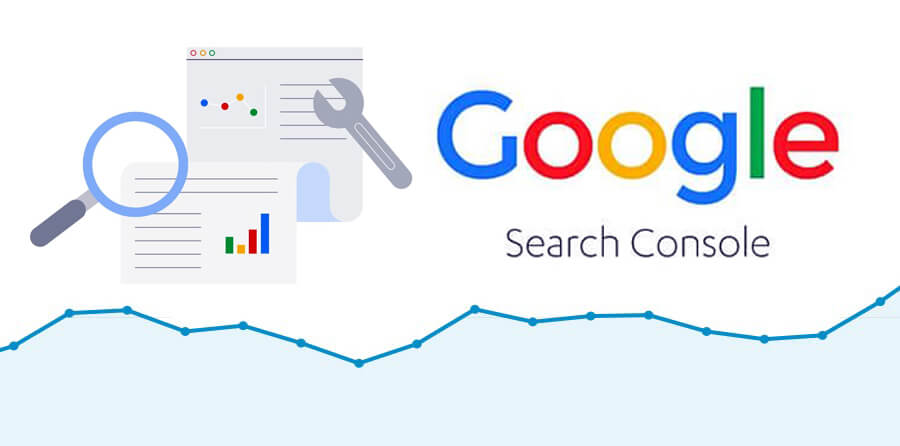
Google Search Console is a free tool provided by Google that offers direct insights into how the search engine views your site:
- Sign up for a Google Search Console account
- Verify ownership of your website
- Navigate to the “Performance” report
- View average position data for search queries your site appears for
Benefits of Google Search Console:
- Direct data from Google itself
- Shows actual search queries bringing traffic
- Provides average position across all impressions
- Displays total clicks and impressions
- Shows performance over time
Google Search Console is particularly valuable because it shows users’ search terms for finding your site, not just the keywords you’re targeting. The “average position” metric gives you an accurate picture of where your website typically appears.
Ahrefs
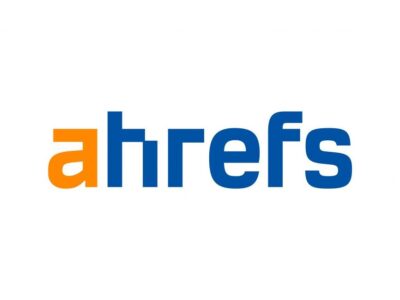
Ahrefs is a premium SEO tool offering comprehensive rank tracking capabilities:
- Create an Ahrefs account
- Set up a rank tracker project for your domain
- Add keywords you want to track
- Monitor positions over time
What Ahrefs offers:
- Track thousands of keywords
- Compare performance against competitors
- View historical ranking data
- Filter by location, device type, and more
- See SERP features (featured snippets, knowledge panels, etc.)
Ahrefs also provides a comprehensive view of which keywords a website ranks for, making it excellent for competitive analysis and finding ranking opportunities.
SEMRush

SEMRush provides detailed keyword performance tracking and competitive analysis:
- Sign up for a SEMRush account
- Add your domain to the Position Tracking tool
- Enter keywords to monitor
- Set your target location and device preference
SEMRush advantages:
- Daily rank updates
- Visibility score to track overall performance
- Competitor rank comparison
- SERP feature tracking
- Custom reporting options
SEMRush’s Position Tracking tool makes it easy to visualize ranking trends and identify areas for improvement in your SEO efforts.
Ubersuggest

Ubersuggest is a more affordable option with solid rank tracking capabilities:
- Create an Ubersuggest account
- Add your domain
- Set up rank tracking for your keywords
- Select your target location
Ubersuggest Features:
- Keyword position tracking
- Competitor rank monitoring
- Daily rank updates
- Mobile vs. desktop tracking
- Limited free tier available
Ubersuggest serves as a good starting point for businesses with smaller budgets who still need reliable rank tracking.
SERanking
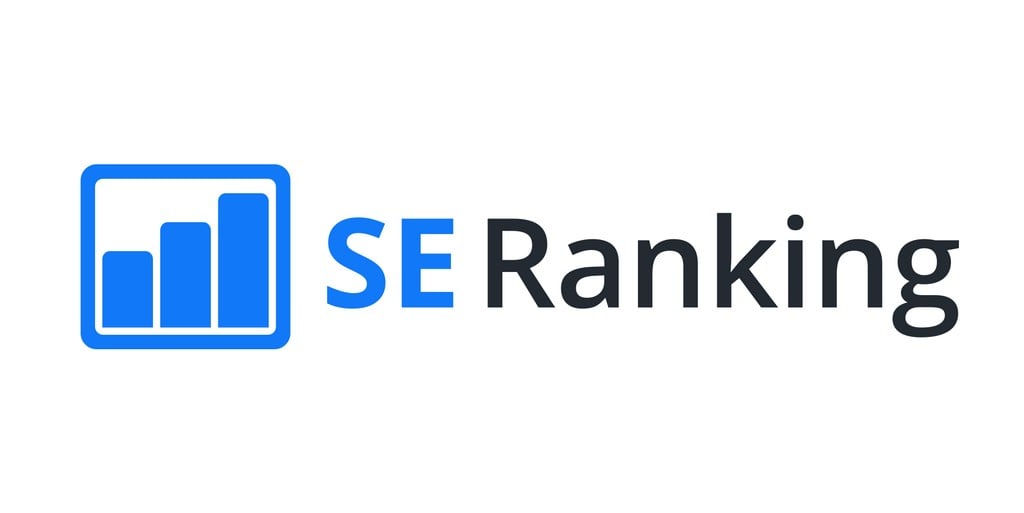
SERanking offers flexible rank checking options:
- Sign up for SERanking
- Create a new project for your website
- Add keywords to track
- Choose checking frequency and locations
SERanking Benefits:
- Check rankings in multiple locations
- White-label reporting options
- Keyword grouping capabilities
- Ranking change alerts
- Competitor comparison
SERanking’s flexible pricing model allows you to pay based on checking frequency, making it cost-effective for businesses with specific needs.
Sitechecker

Sitechecker provides comprehensive website analysis including rank tracking:
- Create a Sitechecker account
- Add your domain name
- Set up rank tracking
- Configure location settings
Sitechecker Features:
- Daily rank updates
- Mobile and desktop tracking
- Historical data storage
- Technical SEO analysis
- White-label reporting
Sitechecker combines rank tracking with technical SEO analysis, making it useful for identifying issues affecting your rankings.
The Hoth

The Hoth offers a free rank checker tool alongside their SEO services:
- Visit The Hoth’s rank checker
- Enter your domain and keywords
- View current rankings
The Hoth Rank Checker:
- Quick rank snapshots
- Free to use
- No account required
- Basic location targeting
The Hoth’s tool provides a fast way to check rankings without commitment, though it lacks the advanced features of dedicated tracking tools.
SERPstat
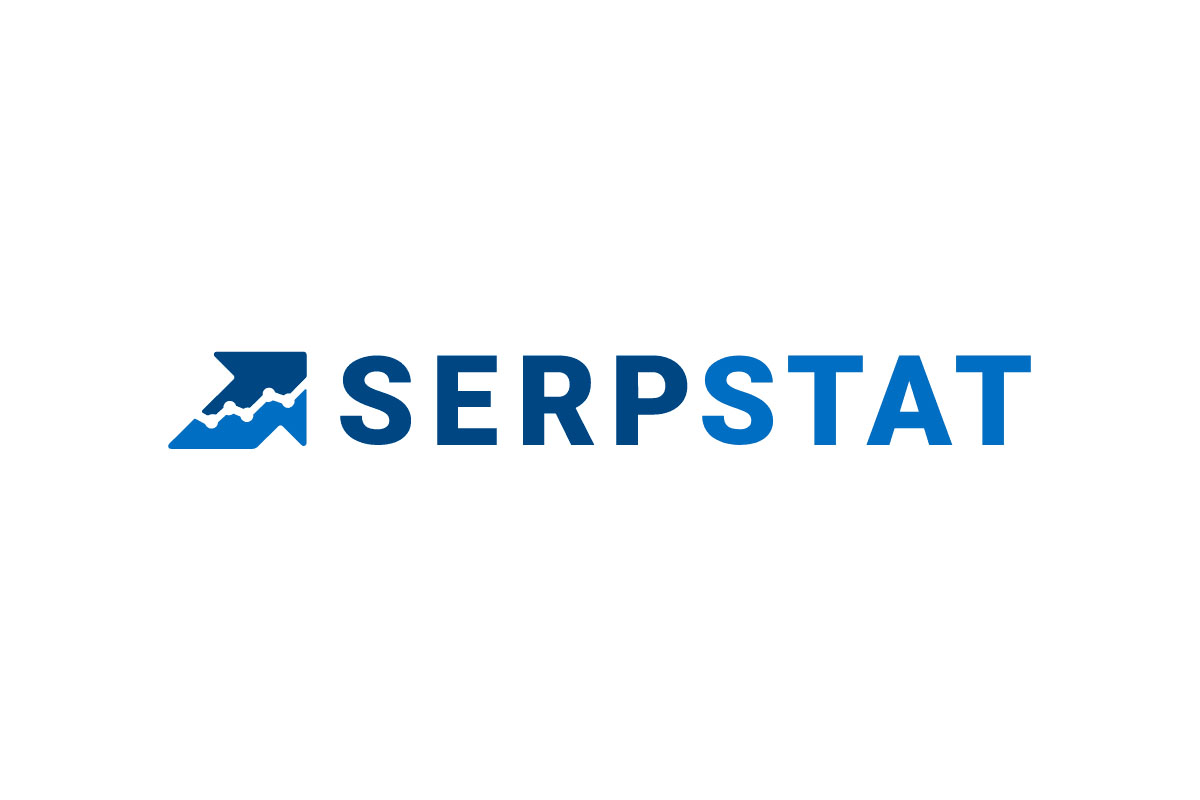
SERPstat offers detailed SERP analysis and rank tracking:
- Create a SERPstat account
- Set up a new project
- Add keywords to track
- Configure tracking settings
SERPstat Advantages:
- Comprehensive SERP features analysis
- Keyword grouping
- Rank tracking in multiple locations
- Visibility index for overall performance
- Competitor analysis
SERPstat excels at providing detailed SERP analysis alongside ranking data, helping you understand the full search landscape.
MozPro
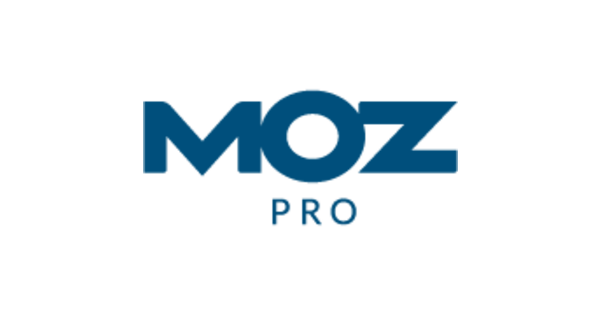
MozPro, from the respected SEO company Moz, provides reliable rank tracking:
- Sign up for MozPro
- Create a campaign for your website
- Add keywords to track
- Set location parameters
MozPro Features:
- Weekly rank updates
- Historical ranking data
- Page-level ranking information
- Integration with other Moz tools
- Custom reporting
MozPro’s rank tracking integrates seamlessly with their other SEO tools, providing a comprehensive approach to SEO monitoring.
Mangools

Mangools offers SERPWatcher as part of their SEO tool suite:
- Create A Mangools account
- Set up a SERPWatcher project
- Add keywords to track
- Configure location settings
Mangools SERPWatcher Benefits:
- “Dominance Index” for overall performance
- Daily rank updates
- Mobile vs. desktop tracking
- Interactive data visualization
- Email alerts for significant changes
Mangools provides user-friendly interfaces and visualizations, making it accessible for SEO beginners while still offering powerful tracking capabilities.
How Do You Check Which Keywords A Website Is Ranking For?
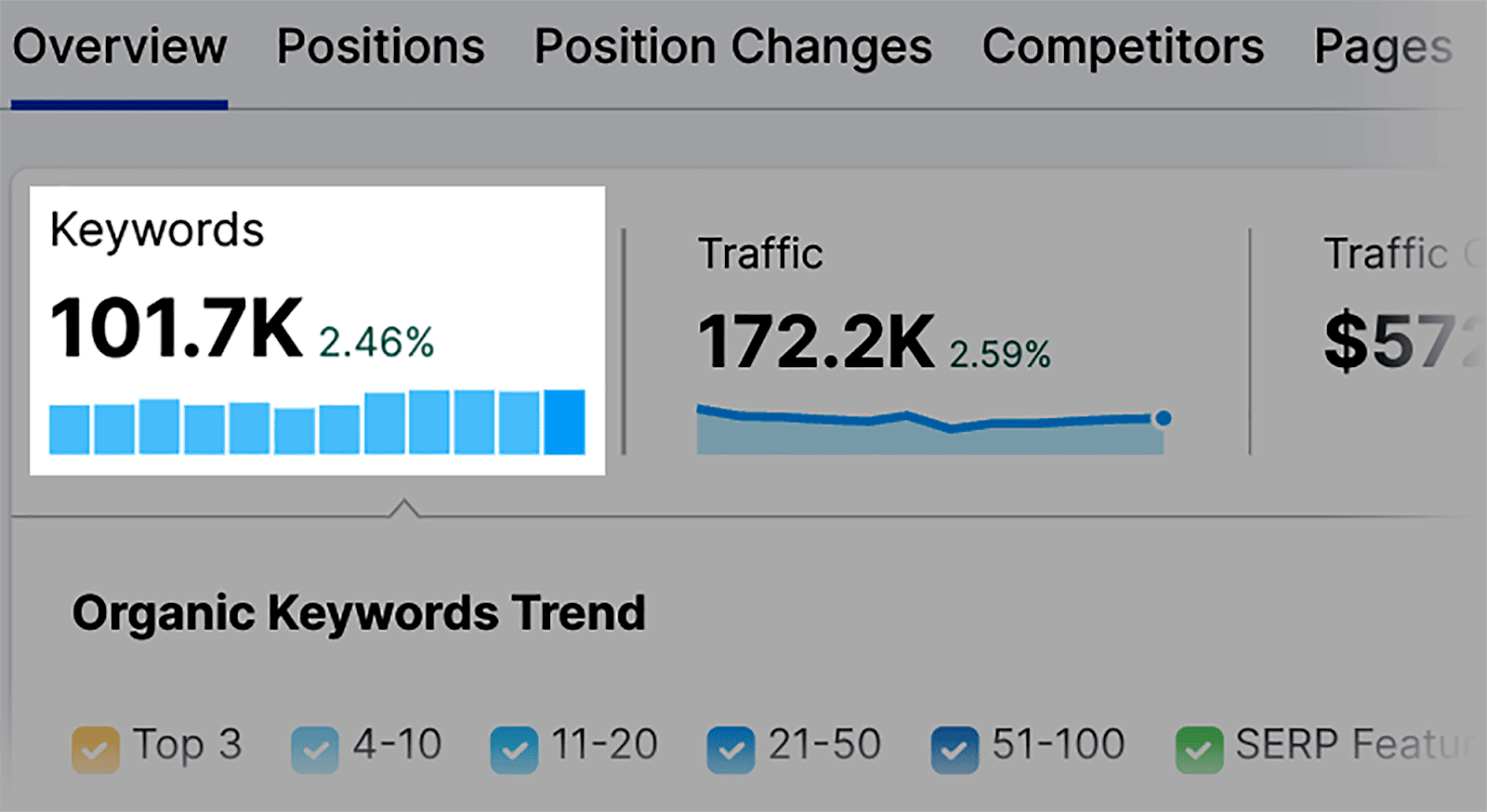
Beyond tracking specific keywords, you might want to know all the search terms your website ranks.
Here’s how to get that information:
- Google Search Console: Navigate to the Performance report to see all queries your site appears for in search results. This shows actual search queries people use to find your site, along with their average position, clicks, and impressions.
- SEO Tools: Platforms like Ahrefs, SEMRush, and Ubersuggest can analyze your domain and show organic keywords you’re ranking. These tools typically find more keywords than Google Search Console because they maintain their databases of search results.
To check your competitor’s ranking keywords:
- Enter their domain into tools like Ahrefs’ Site Explorer or SEMRush’s Domain Overview
- Navigate to the organic keywords section
- Review their ranking keywords
- Filter by position, search volume, or difficulty
This competitive analysis helps identify keyword gaps and opportunities for your own SEO strategy.
When checking which keywords a website ranks for, pay attention to:
- Ranking position
- Search volume
- Keyword difficulty
- SERP features
- Ranking URL (which page ranks for each term)
This information helps prioritize your SEO efforts on keywords with the best potential return.
Can I Check A Website’s Rank For Free?
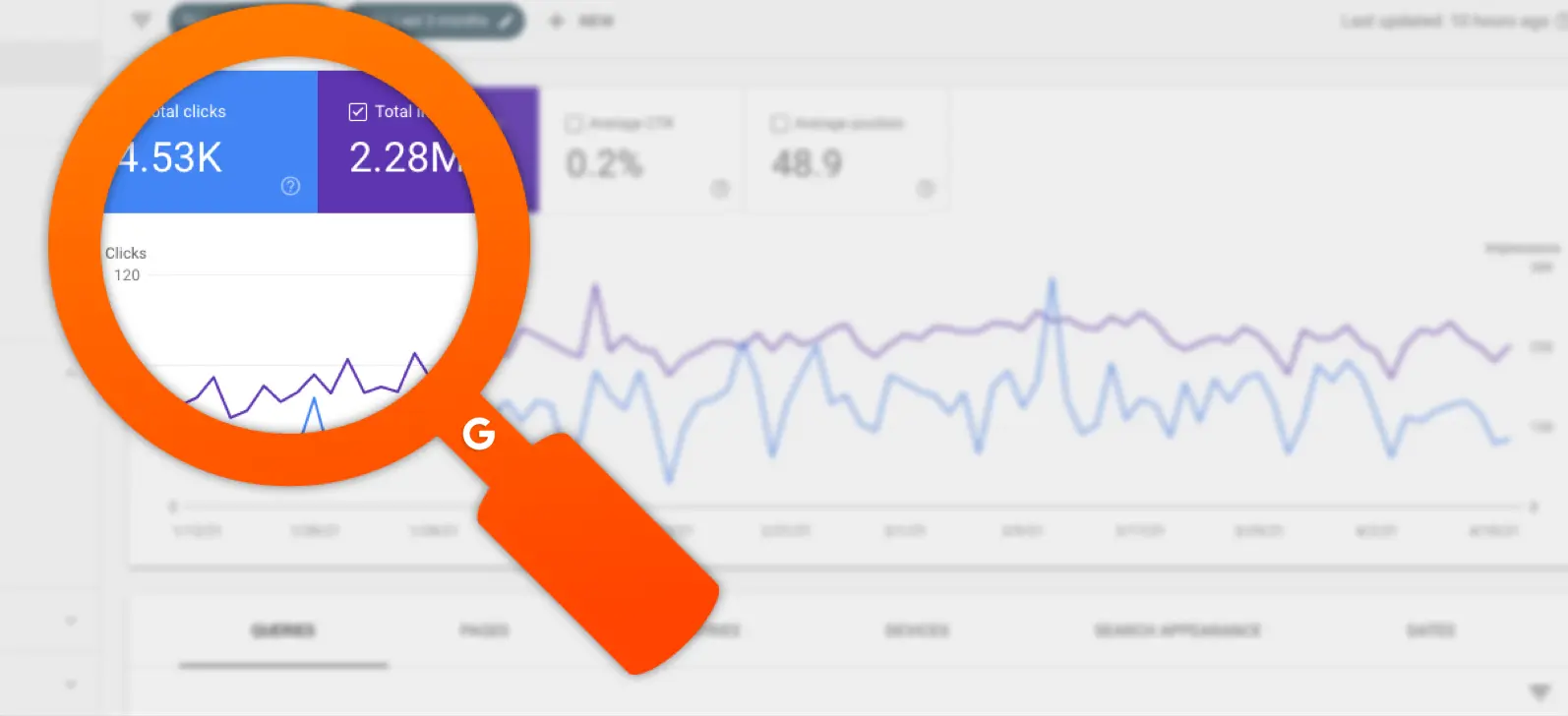
Yes, several free options exist for checking your website’s Google rank:
Google Search Console: The most reliable free option directly from Google. It provides average position data for all queries your site appears for in search results. While it doesn’t allow tracking specific keywords you’re targeting but aren’t ranking for yet, it’s invaluable for understanding your current search performance.
Free versions of paid tools: Many premium SEO tools offer limited free versions:
- Ubersuggest: Track a limited number of keywords for free
- SmallSEOTools Rank Checker: Check rankings without creating an account
- SEOReviewTools: Offers a free rank checker with basic functionality
- SERPlab: Provides free rank checking with some limitations
Manual checking: Using incognito mode to search for keywords and find your position works for a small number of terms but becomes impractical at scale.
Free Google rank checker tools typically have limitations such as:
- Restricted number of keywords
- Limited checking frequency
- Fewer location options
- No historical data storage
- Basic reporting capabilities
For serious SEO efforts, investing in a paid rank tracking tool usually becomes necessary as your keyword list grows. However, starting with free tools can provide valuable insights while you determine your tracking needs.
The Importance Of Regularly Checking Website Ranking
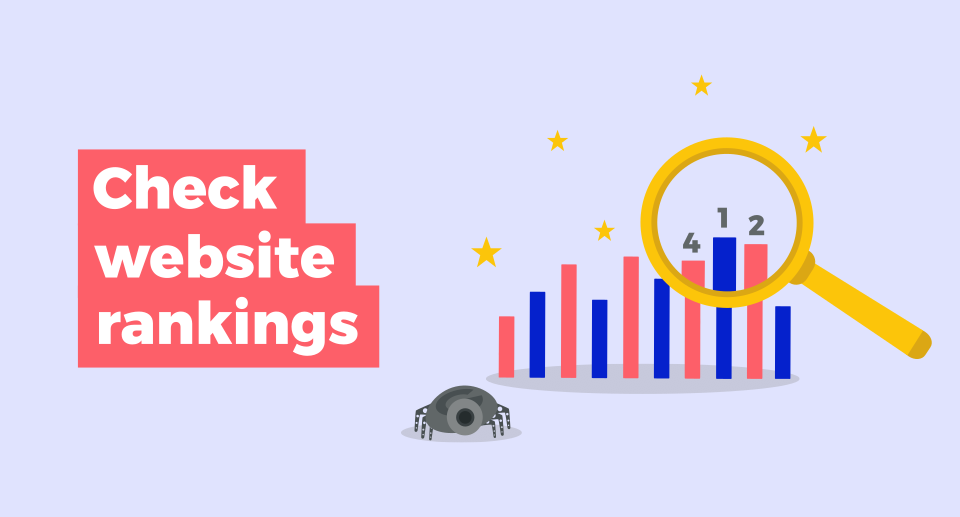
Consistent monitoring of your website ranking is vital for several reasons:
- Early Problem Detection: Regular checks help you quickly identify ranking drops that might indicate technical issues, algorithm updates, or competitive changes. The faster you spot problems, the sooner you can address them.
- SEO Strategy Validation: Tracking position changes confirms whether your SEO work is yielding results. Improvements validate your approach, while stagnation signals the need for adjustment.
- Competitive Awareness: Monitoring your rankings relative to competitors helps you stay informed about market shifts and competitive strategies. This awareness allows you to respond proactively to threats and opportunities.
- Algorithm Update Impact Assessment: Google makes thousands of algorithm changes yearly, with major updates several times annually. Regular rank checking helps you determine how these updates affect your site’s performance.
- Growth Opportunity Identification: Tracking shows which keywords are on the verge of ranking well (positions 11-20), helping you prioritize optimization efforts for terms with the best improvement potential.
For most websites, checking rankings weekly provides sufficient data without becoming overwhelming. However, after implementing significant changes or during algorithm updates, more frequent monitoring may be beneficial.
Systematic rank tracking should become a cornerstone of your ongoing SEO efforts, providing the feedback necessary to refine your strategy continuously.
Factors Affecting Your Website’s Google Ranking
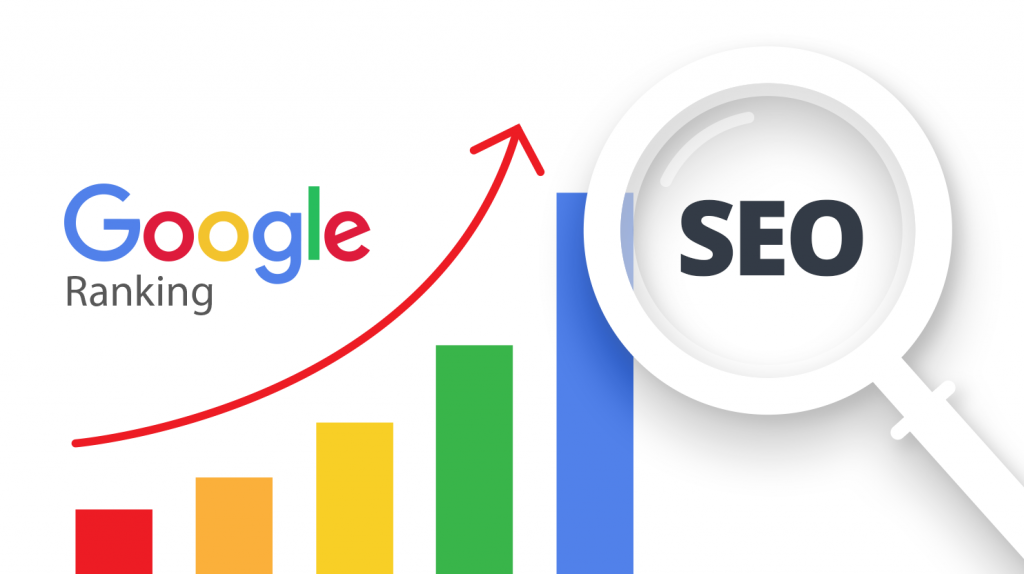
Understanding what influences your ranking position helps you prioritize improvement efforts.
Here are the key factors affecting your Google rank:
Keyword Relevance
Keyword relevance remains fundamental to search rankings.
Google analyzes how well your content matches user search intent:
- Content Matching: How comprehensively your content addresses the topic
- Keyword Placement: Strategic use in titles, headings, and throughout content
- Semantic Relevance: Related terms and concepts that demonstrate topic expertise
- Search Intent Alignment: Whether your content satisfies what users are looking for
Improving keyword relevance involves creating thorough content that naturally incorporates relevant terms and comprehensively addresses user questions.
Website Authority
Google evaluates your site’s credibility and expertise:
- Backlink Quality: Links from respected, relevant sites signal authority
- Domain History: Established sites often receive preference
- Brand Signals: Mentions across the web without direct links
- Author Expertise: Credentials of content creators
Building website authority takes time and requires earning quality backlinks through valuable content, industry relationships, and strategic outreach.
Content Quality
High-quality content significantly impacts rankings:
- Thoroughness: Comprehensive coverage of topics
- Originality: Unique perspectives and information
- Accuracy: Factually correct and up-to-date
- Readability: Well-organized and easy to consume
- Engagement Metrics: Time on page, bounce rate, etc.
Google increasingly evaluates content based on how users interact with it. Content that keeps visitors engaged and answers their questions thoroughly tends to rank higher.
User Experience
The experience you provide visitors directly affects rankings:
- Page Speed: Fast-loading pages rank better
- Mobile-Friendliness: Responsive design is essential
- Navigation: Intuitive site structure
- Accessibility: Content accessible to all users
- Core Web Vitals: Technical performance metrics
Google’s Page Experience update formalized UX as a ranking factor, making user-friendly design more important than ever.
Mobile-Friendliness
With Google’s mobile-first indexing, mobile optimization is important:
- Responsive Design: Site adapts to all screen sizes
- Touch-Friendly Navigation: Easily clickable elements
- Font Size and Readability: Text that’s easy to read without zooming
- Reduced Pop-Ups: Limited interruptions to the mobile experience
- Accelerated Mobile Pages (AMP): Fast-loading mobile versions
Google now primarily uses the mobile version of your site for indexing and ranking, making mobile optimization non-negotiable.
Website Speed
Site speed directly impacts both rankings and user satisfaction:
- Page Load Time: Faster pages rank better
- Time To First Byte (TTFB): Server response speed
- Core Web Vitals: Largest Contentful Paint, First Input Delay, Cumulative Layout Shift
- Resource Optimization: Compressed images, minified code
- Caching: Properly implemented browser caching
Tools like Google PageSpeed Insights help identify specific speed improvements for your website.
FAQ’s:
How Often Should I Check My Website Ranking?
Weekly checks provide a good balance for most businesses.
This frequency allows you to identify trends without becoming fixated on daily fluctuations. After major website changes or during algorithm updates, you might temporarily increase checking frequency to monitor impact.
Set up automated tracking with tools that provide alerts for significant changes, allowing you to respond quickly to important ranking shifts without constant manual checking.
What Is A Good Website Ranking?
Appearing on the first page of Google search results (positions 1-10) is generally considered good.
However, the value depends on several factors:
- Position #1 vs. Others: The top position typically receives 20-30% of clicks, with sharp drop-offs for lower positions
- Search Volume: Ranking #1 for a low-volume term may generate less traffic than ranking #5 for a high-volume term
- SERP Features: Features like featured snippets or knowledge panels can reduce clicks even for top positions
- Competitive Terms: Ranking in the top 5 for highly competitive terms may be more valuable than ranking #1 for less competitive terms
Rather than fixating on specific positions, focus on ranking trends and the actual traffic generated from different keywords.
How Long Does It Take To Improve Website Ranking?
Improvement timeframes vary based on numerous factors:
- Site Age and Authority: Established sites may see faster results
- Competitive Landscape: Highly competitive niches take longer
- Starting Position: Moving from page 5 to page 2 is often easier than page 2 to page 1
- Implementation Quality: Thorough, high-quality optimization yields faster results
- Technical Issues: Resolving major technical problems can produce quick improvements
Generally, expect to see initial movement within 2-3 months of implementing changes, with significant improvements taking 4-12 months for competitive terms. Some highly competitive terms may require years of consistent effort to achieve top rankings.
Is There A Way To Guarantee A Top Ranking On Google?
No legitimate SEO professional can guarantee specific rankings on Google. The search algorithm considers hundreds of factors, many outside your direct control. Additionally, Google’s algorithm changes constantly, and competitor actions affect the search landscape.
Instead of seeking guarantees, look for SEO partners who:
- Set realistic expectations
- Focus on sustainable, white-hat techniques
- Measure success through multiple metrics (traffic, conversions, etc.)
- Adapt strategies based on results
- Demonstrate previous success with similar websites
At VH-Info, we focus on proven, ethical link building and SEO strategies that produce lasting results rather than quick fixes that risk penalties.
How Does Google’s Mobile-First Indexing Affect Rankings?
Google now primarily uses the mobile version of your website for indexing and ranking.
This means:
- Mobile-friendly websites receive preference in rankings
- Mobile usability issues can negatively impact desktop rankings
- Page speed on mobile devices directly affects overall rankings
- Content visible on desktop but hidden on mobile may not contribute to rankings
- Mobile-specific errors (like touch element spacing) can hurt overall site performance
To succeed with mobile-first indexing:
- Ensure your mobile site contains the same content as desktop
- Verify that structured data works on mobile
- Make sure images and videos are optimized for mobile
- Check that all important links are accessible on mobile
- Test your site using Google’s Mobile-Friendly Test tool
Conclusion
Monitoring where your website ranks on Google provides essential feedback on your SEO efforts and online visibility. Regular rank checking helps you identify opportunities, track progress, and respond quickly to algorithm changes or competitive shifts.
The tools and methods we’ve covered offer various approaches to tracking your Google ranking, from free options like Google Search Console to comprehensive paid solutions like Ahrefs and SEMRush.
Choose the approach that fits your budget and needs, but make rank tracking a regular part of your SEO strategy.
Remember that rankings are a means to an end, not the end itself. The ultimate goal is increasing relevant traffic, leads, and conversions. Use ranking data to inform your strategy, but focus on creating exceptional user experiences and content that truly serves your audience.
For SaaS companies looking to improve their search engine rankings, VH-Info offers specialized link building services designed to boost your website’s authority and visibility.
Our approach focuses on quality over quantity, building relevant backlinks that drive sustainable ranking improvements.
The next step in your SEO journey is establishing a consistent rank tracking process, identifying your most valuable keyword opportunities, and implementing targeted improvements. With the right strategy and tools, improved rankings and increased organic traffic are within reach.



